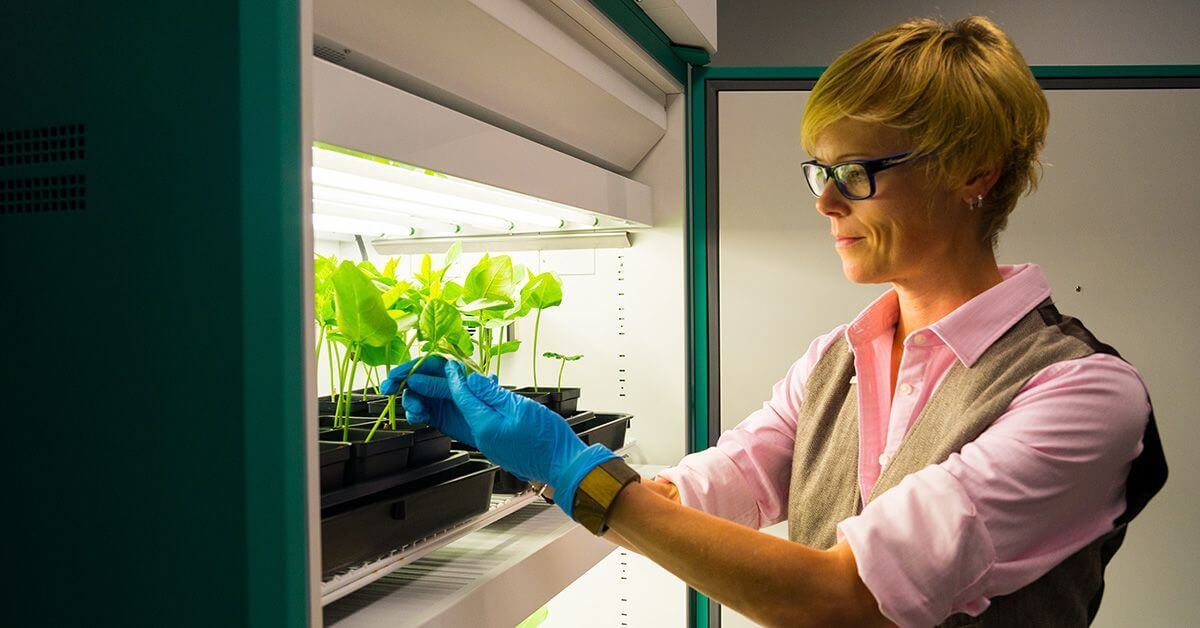
Closeup of cowpea leaves with leaf curl disease. Bacteria or mosaic virus. (sulit.photos/Shutterstock)
SAN DIEGO — A virus that infects and kills plants may hold the key to defeating cancers that spread throughout the human body. Cowpea mosaic virus, a scourge of the black-eyed pea plant, is harmless to people and other mammals. With that in mind, researchers at UC San Diego used the virus's nanoparticles to create a new way of suppressing tumor growth and preventing cancer from returning.
Testing this potential drug in mice, the team found that the cowpea mosaic virus improved survival rates among animals with metastatic tumors due to colorectal, ovarian, skin, and breast cancers. They also discovered that the virus worked just as well in mice that had tumors surgically removed. Simply put, this new treatment may create a protective immune shield that keeps cancer from coming back after a patient has their tumor removed by doctors.
The findings published in Advanced Science build on previous studies by Prof. Nicole Steinmetz which tested if particles of the cowpea mosaic virus could trigger an immune response against cancer cells. Those tests saw scientists inject the virus directly into tumors instead of letting the virus spread throughout the entire body.
Even though cowpea mosaic virus does not harm the body, experiments showed that a mammal's immune system still recognized the virus as something that should not be in the body and reacted accordingly. Immune cells attacked the existing tumors carrying cowpea mosaic virus and also remembered to attack other tumors that grew back in the future.

In this new study, Prof. Steinmetz and her team did not inject the mouse tumors directly. Instead, they used the nanoparticles to systemically improve the body's immune system. Think of it like this: scientists allowed this plant virus to spread throughout the body, so the entire immune system ramped up its response to threats — like cancerous tumors.
Results show that this new approach systemically improved survival rates among the mice and also kept cancer from spreading to other parts of the body.
“Here, we do not treat established tumors or metastatic disease—we prevent them from forming. We are providing a systemic treatment to wake up the body’s immune system to eliminate the disease before metastases even form and settle,” Steinmetz says in a university release.
The most promising result of the new study was the improvement in health post-surgery. In mice that had their tumors removed by surgeons, the cowpea mosaic virus nanoparticles lowered the chances of tumor regrowth — a common fear for cancer patients needing surgery.
“Even if you perform surgery to remove the tumors, no surgery is perfect and there is outgrowth of metastasis if no additional treatment is provided,” Steinmetz explains. “Here, we use our plant virus nanoparticles after surgery to boost the immune system to reject any residual disease and prevent circulating tumor cells from metastatic seeding. We found that it works really, really well!”
Looking ahead, the team's next goal is to gear up for clinical trials that eventually lead to human trials. The team will be conducting safety studies and exploring the treatment’s effectiveness in pets diagnosed with cancer.










